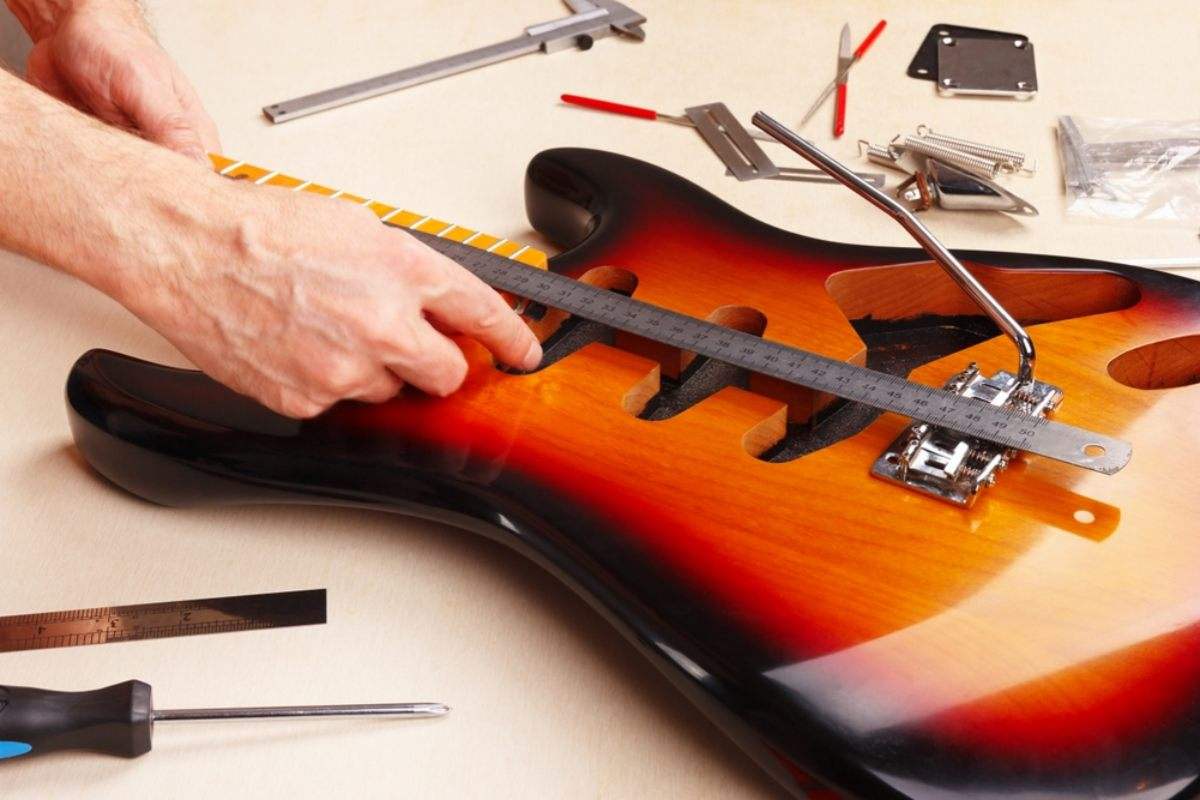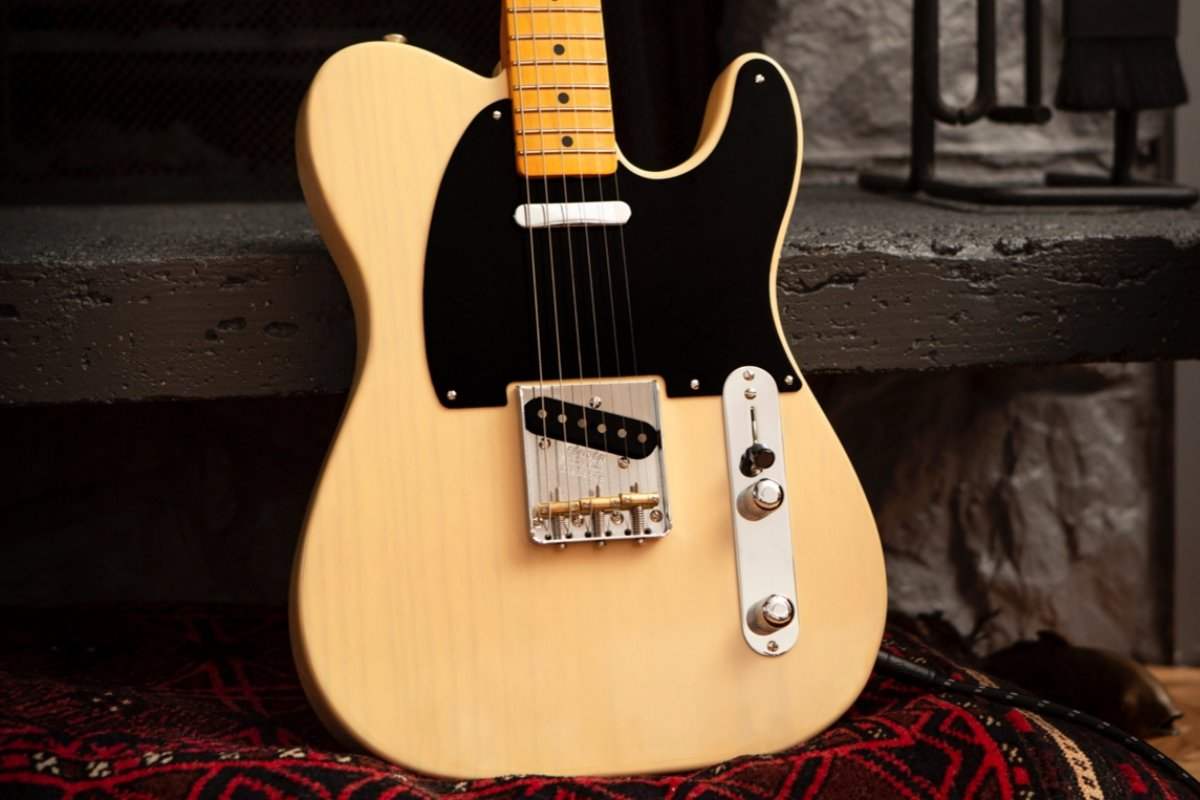Do you love woodwork and using your hands to make things? Are you a huge fan of music and everything to do with it? Are you looking for an exciting career that could involve you building instruments for some of the greatest guitarists that have ever lived? If you answered yes to these three questions, then becoming a guitar luthier could be the perfect job for you.
So, let's find out what a luthier does, the best ways to become a guitar luthier, and what career options will become open to you.
What is a Guitar Luthier?
A luthier is a skilled craftsman who designs and builds stringed instruments, as well as repairs them. Most luthiers will specialize in working on one type of instrument, e.g., guitars, but some may build a variety of instruments, such as guitars, mandolins, and banjos.
A master luthier will have spent years, or even decades, studying the art of guitar construction and repair.
Guitar luthiers may work in a number of different locations, for example, in a guitar repair shop, a guitar factory, or working for themselves producing custom instruments.
In addition to building guitars, luthiers will also repair any physical damage to an instrument's body such as fractures or dents. This may involve cleaning, sealing, patching, and refinishing the damaged areas and ensuring the repair is not only structurally sound but also as invisible as possible to not affect the beauty of the instrument. They are also experts at refurbishing vintage instruments to make them as playable as they ever were, if not even better.
What skills are an advantage to those who are thinking of becoming a luthier
Most guitar luthiers will learn and refine their skills when they take an apprenticeship, but there are some prior skills and previous experience that will help them excel in the art. Here are a few of them…
- Knowledge of and experience in designing, building, and repairing guitars
- Woodworking and finishing experience
- Great interpersonal as well as communication skills
- A good ear that knows when an instrument sounds good
- Knowing how to run a business
Being able to play the guitar is also a great advantage, regardless of how well. But, if your guitar skills are nothing special, don't get downhearted, Fender Guitars founder, Leo Fender couldn't play guitar either!
However, knowing the basics of how to play a guitar will help you get a better sense of how it is used and how the design affects what it is actually like to play. Therefore, learning the basics - how to tune it, strumming, and a few simple chords is highly recommended.
How do you Become a Guitar Luthier?
There are a number of ways to become a Guitar Luthier, so let's take a look at them…
Teach Yourself
The majority of luthiers start by simply having a go at a repair or a complete build project. There are masses of excellent online resources that will take you from initial design, through every stage of a build, up until the end of the project. In fact, there are so many quality resources that it's well worth checking out the 10 Best Online Resources for Learning to Build and Modify Guitars.
These will help you start your journey to becoming a master luthier, with information on the materials used to make instruments, the techniques, as well as the principles of guitar design. And if you decide to take a more formal course in guitar building in the future, which is highly recommended, knowing the basic techniques will be a distinct advantage.
It's also worth taking some time to familiarise yourself with the different woods used to make guitars, and how they affect the sound of the instrument. Understanding the basic guitar repair techniques will also be useful.
It's also a great idea to get some hands-on experience to find out if working as a guitar luthier is the right option for you. Get yourself a kit guitar or a cheap second-hand one to try your skills on. Doing simple modifications such as changing the pots, tuning machines, or pickups, is a great way to find out if you enjoy Lutherie before you commit to formal education or an apprenticeship.
Teaching yourself to be a guitar luthier isn't easy, and you'll need discipline, dedication, and a lot of patience. But the rewards far outweigh the effort, so it's well worth putting the hours in.
Formal Education
There are various options to learn the skills required to become a luthier, which one is best for you will depend on your personality, how much available time you have, and your budget.
Vocational training programs are a very popular option and will teach you all the skills you will need to construct and repair guitars as well as the fundamentals of being a professional luthier. Certificate or diploma programs normally take less than two years to complete.
Or, if you would prefer a more focused way of learning, there are intensive programs and workshops that concentrate on specific aspects of the design and repair of musical instruments. These can be anything from weekly workshops that last a few hours, usually in the evenings, to weekend events, to intensive residential courses that could last for a few weeks or more.
Even if you aim to predominantly work on guitars, being skilled in the construction and repair of other stringed instruments will expand your skill set and give you the option of other Lutherie work if needed.
If there is a lack of focused education in your area then you could take a more general course such as woodworking. This will teach you everything from the basics to advanced techniques that you can apply to your Lutheire work
Apprenticeship
Possibly the best way to learn the skills you will need to be a professional luthier is to get an apprenticeship. On-the-job training with a master luthier will not only teach you the technical skills required, but you will also learn other vital information, such as how the business is run, how to deal with clients, and how to attract customers.
And, if everything goes to plan, you could well get offered a permanent position after your apprenticeship is over.
Wrapping It Up
You should now know exactly what a guitar Luthier does and whether it's something that you would enjoy as a career. If you need more information, please check out my Tips on Getting Started in Lutherie as well as my Beginner's Guide to Luthier Tools.
I'll end by wishing you the very best on your journey to becoming a master Luthier.
If you like this article, please share it!
Be sure to join our FB Group Guyker Guitar Parts VIP Group to share your ideas! You can also have connections with like-minded guitar players, Guyker updates as well as discounts information from our FB Group.





